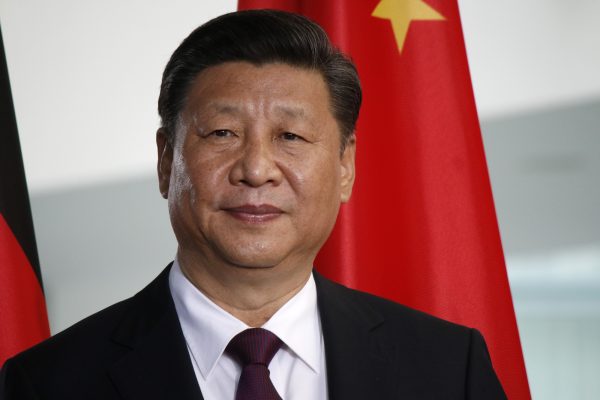China Throttles the Voice of Critics before 20th Congress
As 20th Congress is coming closer, the Chinese government is making increasing efforts to silence the critics of government policies. Communist Party of China (CCP) has scheduled the 20th National Congress on October 16, 2022 in Beijing. The Congress would be attended by about 2,296 representatives of the CCP, which has an estimated membership of 96 million.
The posts of Lao Dongyan, a Criminal Law Professor at Tsinghua University in Beijing on Weibo, a Chinese social media platform were wiped clean. She has a prominent presence in the social media with more than 400,000 followers. Weibo is a Chinese microblog platform, which emptied her account and took down her posts. Lao had been unsparing in criticizing Chinese government on Covid-19 restrictions, widespread use of facial recognition technology and collecting data and personal information to monitor specific identities and social relations anytime, everywhere.
This event is viewed as a typical Chinese way of gagging freedom of speech and throttling critics. This is not the first time that a critic of Chinese government policy has been silenced. This has happened in the past as well. Earlier Sima Nan, a Chinese commentator known for his opposition to pseudoscience and fraud in Qigong, a type of moving meditation, was banned (Aug 2022) from Chinese social media for a week. Similarly, He Weifaug, a law professor as Peking University, has had his social media accounts censored multiple times. He is known for his frequent criticism of China’s oppressive curbs on free speech and for poor governance in managing the coronavirus outbreak.
The 20th Party Congress of the CCP will determine China’s leadership for the next five years. The leadership of the CCP is concentrated in the 25-member Politburo, within which real power rests within the seven-member Politburo Standing Committee (PBSC). But in today’s China, CCP’s General Secretary and Chinese President Xi Jinping has placed himself as indisputable supreme power mirroring authoritarian style of governance. In 2012, he was appointed General Secretary of the 18th Party Congress. Subsequently after being appointed the Chair of the Central Military Commission (CMC) and President of China in early 2013, Xi has increasingly concentrated power into his own hand by sidelining or silencing his political rivals. Xi has gone to the extent of amending the constitution (2018) that restricted leaders to only two-terms as President in order to run for the third time for the post. He is not leaving any stone unturned to ensure that he is re-elected the third time.
The style of Xi to silence the rivals in the past has been well known. Earlier, he purged many of his internal factional rivals through an anti-corruption campaign and subsequently by so called “party rectification campaigns”. During his second term he established his authority by centralizing the decision-making structure of the Chinese system away from state institutions and into a number of small leading groups and committees, nearly all of which are staffed by his close supporters and chaired by him.
Since his rise to power, Xi had himself declared China’s “core leader” and has succeeded in enshrining “Xi Jinping Thought” within the Chinese constitution, elevating himself to nearly same level as Mao Zedong within the CCP’s ideology and history. But these endeavours of Xi has many critics, especially among intellectuals and professionals. Although in the CCP and Politburo, nobody dares to criticize Xi, outside of it there are many. He wants to silence them this way or that way, sometimes even becoming brutal and inhuman.
The typical instance of suppression of critics is removal of the former professor Cai Xia in 2020 who was working at China’s elite Central Party School, a higher education institution for top officials. Her fault was that she was critical of Xi’s policies accusing him of “killing a country.” Xi is criticized by many others for ignoring people’s aspirations and curtailing freedom besides running the country with a coterie.
A number of reports suggest growing opposition to Xi. To counter criticism the Chinese President uses CCP’s official publications to paint a favourable picture about his leadership on one hand and check people on social media platforms on the other hand who criticize his policies. The Cyberspace Administration of China (CAC) under 2018 law controls self media accounts and safeguards online political and ideological security through specified measures. Following this law and safeguard measures China’s all top media platforms viz. WeChat, Douyin, Sina Weibo and Kuaishou rectify the practice of self media.
The overriding goal of Xi for the 20th Party Congress of 2022 is securing at least one more term as President and even a life time rule. Besides, he is also inclined to put his close protégés into positions of power and influence as far as possible, paving a way for himself to safely continue in office indefinitely. Surely, the occasion of 20th Congress is gradually revealing that China is moving towards a truly autocratic rule.
Nevertheless, Xi would continue to face opposing factions in the CCPviz., the “Shanghai Gang” of the former leader Jiang Zemin and the faction associated with former leader Hu Jintao and the Communist Youth League (CYL), currently led by Premier Li Keqiang. This is what Xi is concerned about and why he recently urged the Communist Party in the Party Journal Qiushi, to be united to prepare for “great struggles and face major risks”. Being isolated by the US, Japan and the EU over Taiwan, growing domestic pressures owing to economic slowdown and people’s contempt against “Zero Covid” policy, Xi would try to suppress and block all criticisms, so as to keep his image unblemished to realize his goal in the 20th Congress.











